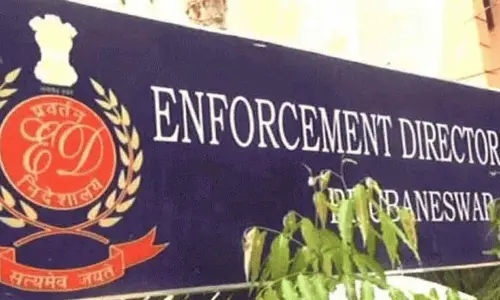Pakistan forms special court for Army Act & OSA related cases
Share :

The caretaker government in Pakistan has constituted a special court in Islamabad to hear the critical Cipher case against former Prime Minister Imran Khan, former Foreign Minister Shah Mehmood Qureshi and his associates, as well as all other cases in which charges are framed under the Official Secrets Act (OSA) and Army Act 1952.
The caretaker government in Pakistan has constituted a special court in Islamabad to hear the critical Cipher case against former Prime Minister Imran Khan, former Foreign Minister Shah Mehmood Qureshi and his associates, as well as all other cases in which charges are framed under the Official Secrets Act (OSA) and Army Act 1952.
The special court will be headed by Anti-Terrorism Court (ATC) court number 1’s judge Abdul Hasnat, while proceedings into all cases that come under the two Acts will be heard in the Judicial Complex building in Islamabad.
The development comes after President Arif Alvi denied the approval of two amendment bills (Army Act Amendment Bill 2023 & Official Secrets Act Amendment Bill 2023), stating that his staff at the Prime Minister's Office undermined his demand and acted against his directive to return the bill to Parliament.
“As God is my witness, I did not sign Official Secrets Amendment Bill 2023 & Pakistan Army Amendment Bill 2023 as I disagreed with these laws. I asked my staff to return the bills unsigned within stipulated time to make them ineffective. I confirmed from them many times that whether they have been returned & was assured that they were. However I have found out today that my staff undermined my will and command. As Allah knows all, He will forgive IA. But I ask forgiveness from those who will be effected," the President said in a tweet.
Alvi's tweet came over a day after it was reported that he had signed and approved both the bills.
These developments have stirred yet another conspiracy as many are questioning the timing of the tweet and have also expressed reservations over the intent of President Alvi, who they say, may have flouted his own public office to show his affiliation with Khan's Pakistan Tehreek-e-Insaf (PTI).
“Its shocking to see how President Alvi, who is not only the head of the state, he is the commander in chief of the Pakistan armed forces also, has presented himself as powerless, helpless and extremely weak to the extent that he couldn’t even manage his own office and its staff in handling such a sensitive matter.” said Javed Siddique, a political analyst.
Legal experts have a different view of the interpretation of the powers and procedures of the President in issuing his assent of dissent on any bill that is sent to the President by the parliament.
“Article 75 of the Constitution of Pakistan gives two options to the President. Once a bill is approved from the National Assembly and the Senate, it is sent to the President for approval. He then has the stipulated time of 10 days to either give his assent on the bill and sign it, or he can return the bill with a letter detailing his concerns over the bill and requesting a reconsideration,” said Hafiz Ahsaan Ahmed Khokhar, an advocate of the Supreme Court of Pakistan.
“If the President does not respond in the stipulated time, and he does not assent nor does he return the bill with his recommendations, it is deemed to have been assented and becomes a law," he added.
The lawyer also explained that if President returns the bills unsigned and with his recommendations, a joint session of Parliament will be called in to review the recommendations and pass the bill again through majority vote.
After approval from the joint session, the bill will again ne sent to the President for assent within a 10-day stipulated time.
“After the joint session approval, President has 10 days to give his assent. Otherwise, the bill is deemed to have been assented and becomes law,” Ahsaan added.
On the other hand, other senior lawyers maintain that two crucial amendments cannot be deemed as assented when President has not signed them, nor has returned them with recommendations.
“If, in the first stage, the president has received the bills and has not signed them nor has he returned the bills in stipulated time -- this is no way can be understood as deemed to have been assented. Either way, the parliament has to call in a joint session and approve the same bills again and send them back to the president for assent,” said senior lawyer Salman Akram Raja.
Political experts say that President Alvi has opened up a new Pandora's Box in which his own staff and office has been pushed into severe scrutiny.
“President Alvi has put his own credibility at stake, his office under questions, his position as president at risk. Instead of taking action against his staff for their conduct and alleged undermining of his orders, he opted to take it to public domain and tweet about it. This is strange,” said senior journalist Shahzeb Khanzada.
The Army Act and Official Secrets Act are being applied in the Cipher case against Khan and Qureshi, who have been booked for mishandling and sharing details of a secret document regarding meeting between American diplomat Donald Lu and Pakistan’s then Ambassador Asad Majeed, details of which were later used by the former premier to spread his narrative of US-led regime change against his government.













